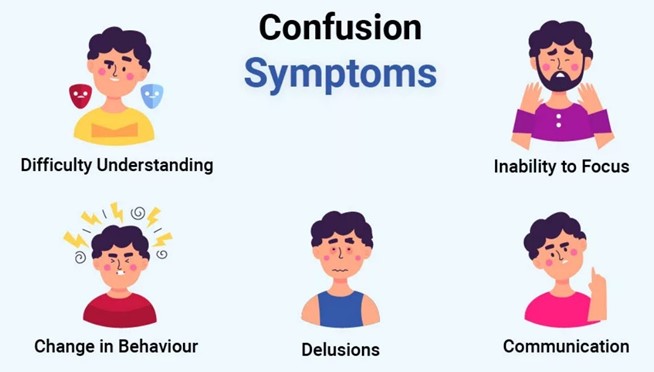An older female adult who was admitted to a long-term care facility yesterday is confused about what day of the week it is. Her history does not indicate that she was confused prior to admission. What action should the practical nurse (PN) take?
Document the client's loss of memory in the record.
Notify the family of the change in the client's condition.
Remind the client what day of the week it is.
Encourage the client to rest during the day.
The Correct Answer is C
This is the best action for the PN to take because it provides reality orientation and helps the client cope with the change in environment. The client may be experiencing acute confusion or delirium due to stress, medication, infection, or other factors. The PN should remind the client of the date, time, and place frequently and use other strategies such as calendars, clocks, and familiar objects to reduce confusion.

A. Documenting the client's loss of memory in the record is not enough and does not address the client's needs.
B. Notifying the family of the change in the client's condition is not a priority and may not be necessary if the confusion is temporary or reversible.
D. Encouraging the client to rest during the day is not appropriate and may worsen the confusion or disrupt the sleep-wake cycle.
Nursing Test Bank
Naxlex Comprehensive Predictor Exams
Related Questions
Correct Answer is B
Explanation
The correct answer is **b. Oral feeding of a two-year-old child after application of a hip spica cast.**
Choice A rationale:
Participation in staff rounds to record notes regarding client goals is not an appropriate task to delegate to a UAP. This task requires clinical assessment, judgment, and documentation skills that are within the scope of practice of a licensed practical nurse (PN), but not a UAP.
Choice B rationale:
Oral feeding of a two-year-old child after application of a hip spica cast is an appropriate task that the PN can delegate to a UAP. Feeding a stable patient is a routine task that does not require advanced nursing skills or clinical judgment. As long as the child is not at high risk for complications, this task can be safely delegated to a UAP with proper training and supervision.
Choice C rationale:
Evaluation of a client's incisional pain following narcotic administration is not an appropriate task to delegate to a UAP. This task requires clinical assessment, evaluation of medication effects, and critical thinking skills that are within the scope of practice of a PN, but not a UAP.
Choice D rationale:
Assessment of the placement and patency of a nasogastric feeding tube is not an appropriate task to delegate to a UAP. This task requires specialized nursing skills and clinical judgment to ensure the safety and effectiveness of the feeding tube. It is within the scope of practice of a PN, but not a UAP.
Correct Answer is A
Explanation
Choice B rationale:
The semi-Fowler's position involves elevating the head of the bed to 30-45 degrees, which is useful for clients with respiratory issues to promote lung expansion. However, for auscultation of the posterior lung fields in a client with left lower lobe pneumonia, the lateral, semi-prone position is more appropriate as it allows better access to the specific area of concern.
Choice C rationale:
Placing the client on the right side-lying position may not be as effective for auscultating the left lower lobe, as the target area is located on the opposite side. The lateral, semi-prone position offers better access to the left lower lobe for assessment.
Choice D rationale:
The forward orthopneic position is a sitting position with the arms supported on a table or over the bed. While this position can assist clients with breathing difficulties, it is not suitable for auscultation of the posterior lung fields. The lateral, semi-prone position is moreappropriate for this purpose.
Whether you are a student looking to ace your exams or a practicing nurse seeking to enhance your expertise , our nursing education contents will empower you with the confidence and competence to make a difference in the lives of patients and become a respected leader in the healthcare field.
Visit Naxlex, invest in your future and unlock endless possibilities with our unparalleled nursing education contents today
Report Wrong Answer on the Current Question
Do you disagree with the answer? If yes, what is your expected answer? Explain.
Kindly be descriptive with the issue you are facing.
